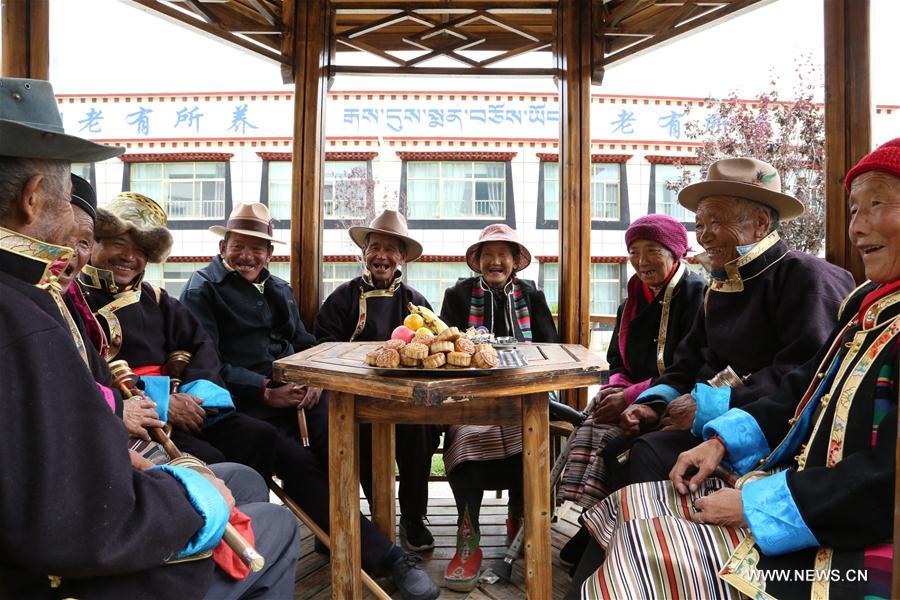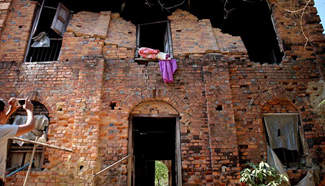
Old people celebrate the Mid-autumn Festival at a nursing home for elders in Qonggyai County, southwest China's Tibet Autonomous Region, Sept. 14, 2016. A total of 11,400 elders in the region's rural areas have been arranged in nursing homes for better care in recent years. (Xinhua/Purbu Zhaxi)
LHASA, March 14 (Xinhua) -- Cering Yangzom, 71, begins her day at 6 a.m. with a kettle of strong buttered tea, despite her carer's frequent advice against it.
"Drink more pure tea. Too much oil is bad for you," Lhaba often told Cering Yangzom.
She easily dismisses the advice. "You kids have no idea about what I have been through. For my whole life I had to drink my tea without yak butter, and now I feel happy just at the smell of it."
The nursing home where Cering Yangzom now resides is located in Dagze County, southwest China's Tibet Autonomous Region.
The hardship of which she speaks were in the days before the peaceful liberation of Tibet in 1951. Born into slavery in the county where she now lives in comparative luxury, her family got by on nothing but the few handfuls of tsampa -- roasted barley flour and still a Tibetan staple -- they were given every two or three days.
In order to take care of her mother, Cering Yangzom never married and had been prepared to spent her twilight years alone. She is now a part of a free program in Tibet for those who have no relatives to look after them.
She is one of 11,400 beneficiaries, previously scattered across rural Tibet, who have been provided with places in nursing homes since 2013.
China is gravely concerned with taking care of its old folks, given the size of country's rapidly graying population. China has more than 40 million senior citizens who need help in taking care of themselves. That's more than the entire population of Canada.
Another 100 elderly people share Cering Yangzom's rest home with her, all living in Tibetan-style bungalows. Each house is shared by two and has its own kitchen and bathroom. In addition, doctors are on call.
A special room in the rest home is used to hold religious rites for the deceased. Residents are often seen turning the prayer wheels set up outside the room.
Cering Yangzom sees Lhaba, who helps with all her chores, as a kind of daughter. "She often brings us snacks she has made at home. We all like her so much," she said.
Lhaba lost her mother as a child. Had she lived, she would have been around the same age as Cering Yangzom, Lhaba said. "I try my best to take care of the elderly. It's a good job, but it is also a way to make up for what I couldn't do for my mum."
Toinzhub is a senior care worker in the rest home. He has seen the organization hire more workers and improve its facilities in the past couple of years.
He has taken a course in massage to do more to make the residents enjoy their lives, but he believes the work he has done is far from enough.
"They need more than just basic care in their daily lives. They also need psychological support, and I'm not very good at that," he said.
To address this need, the Ministry of Civil Affairs will give some carers at rest home with a three-month course for psychological counseling later this year.











